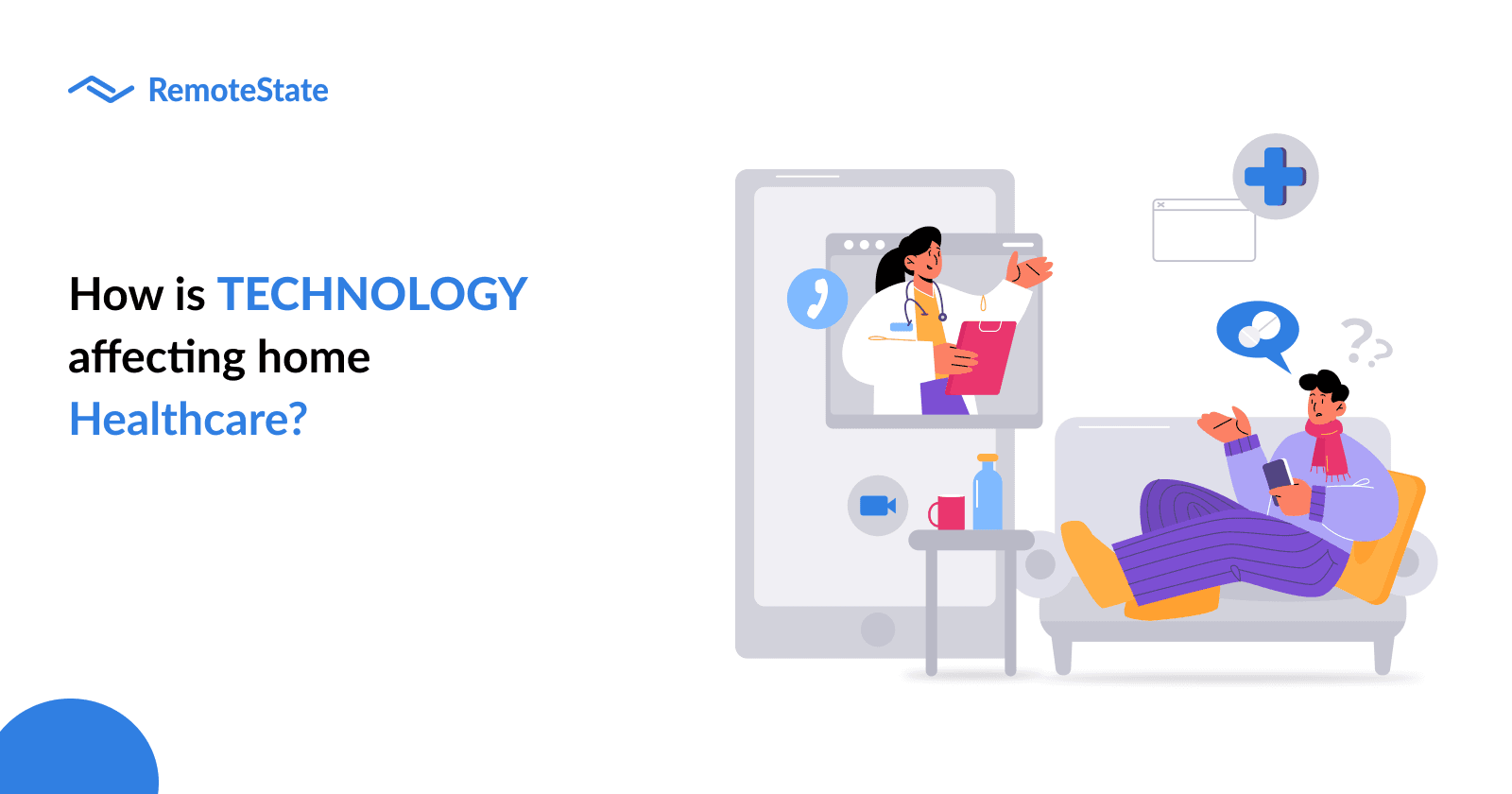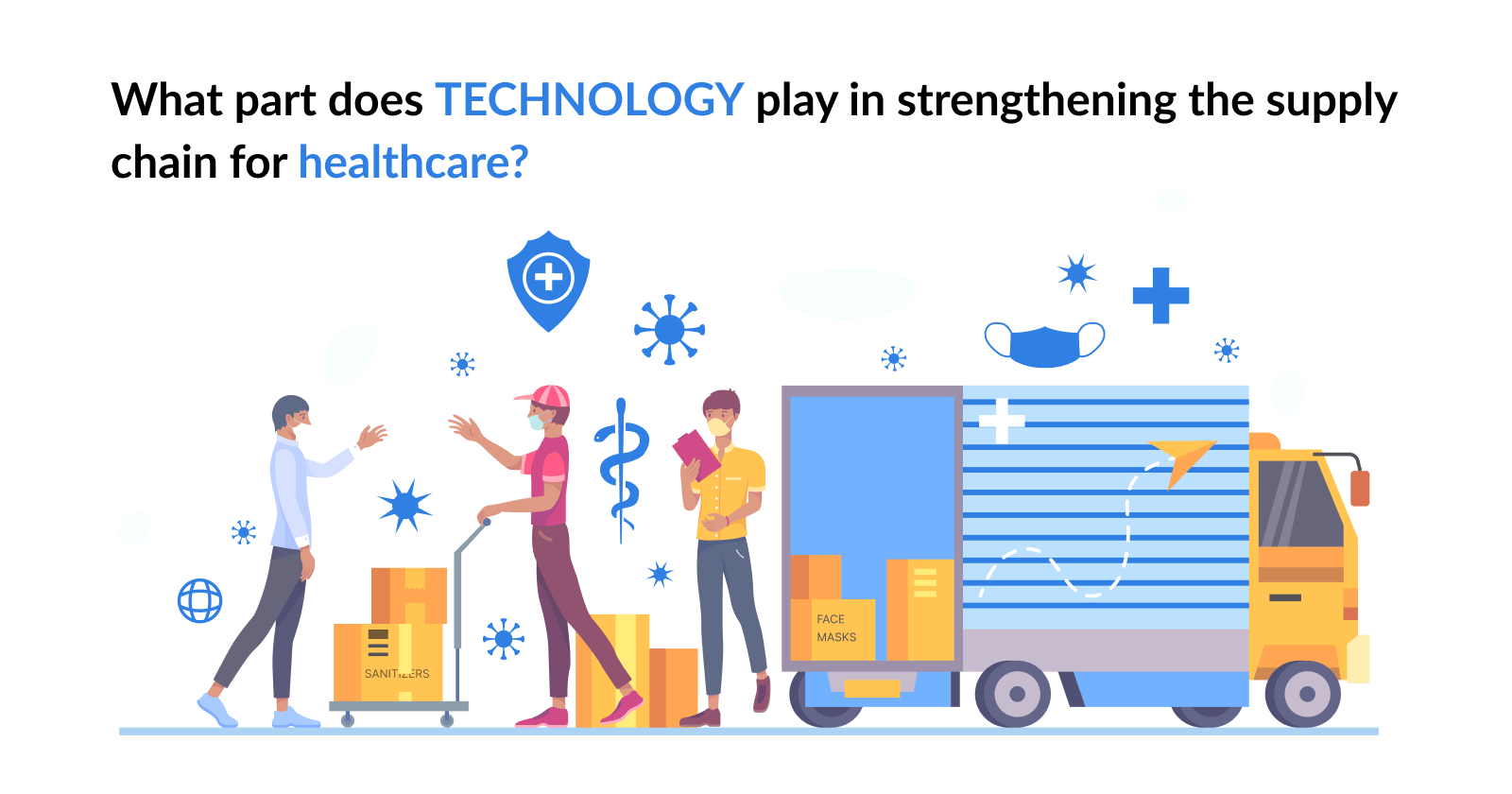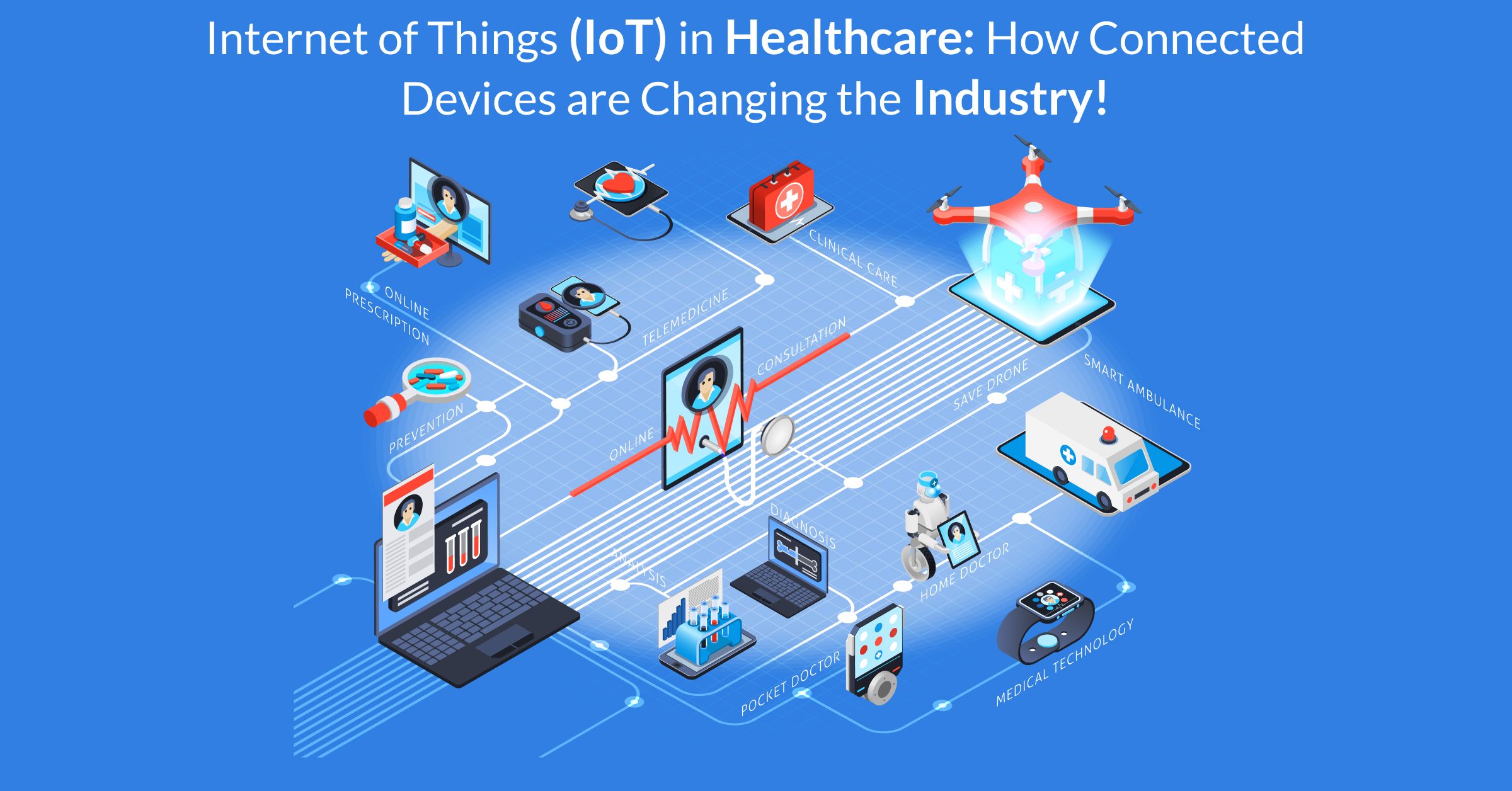Introduction
Telemedicine, using technology to provide medical care remotely, has become increasingly popular in recent years. The COVID-19 pandemic has accelerated its adoption and has shown its potential to revolutionize the healthcare industry.
Telemedicine, using technology to provide medical care remotely, has become increasingly popular in recent years. The COVID-19 pandemic has accelerated its adoption and has shown its potential to revolutionize the healthcare industry. One of the most significant impacts of telemedicine is its potential to reduce healthcare costs and improve healthcare systems.
In this blog, we will explore the benefits, challenges, and opportunities of telemedicine in healthcare.
Benefits of Telemedicine in the Healthcare Industry
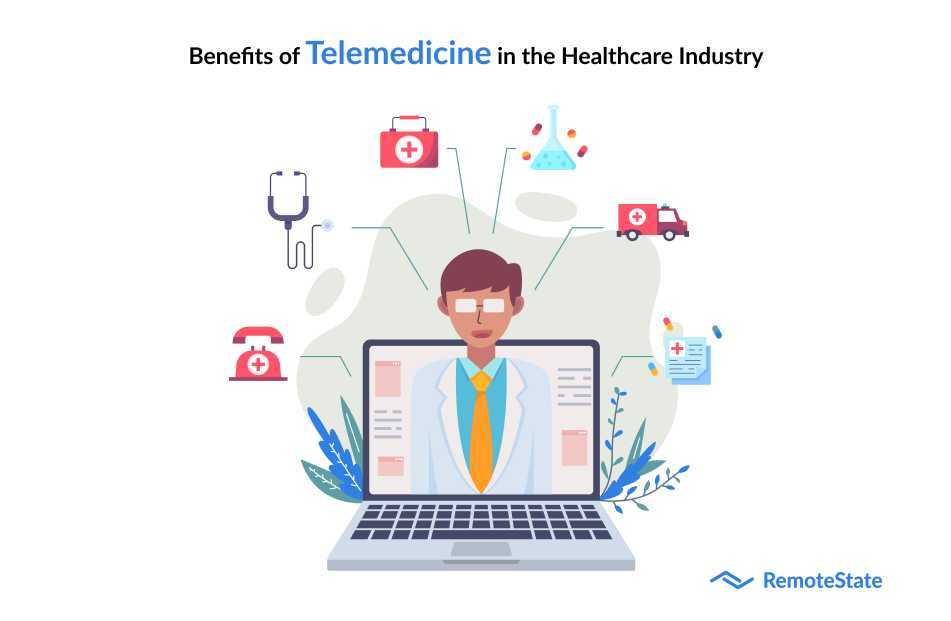
Reduced Healthcare Costs
Telemedicine has the potential to reduce healthcare costs significantly. Patients can avoid costly emergency room visits or hospital stays by receiving remote care. Telemedicine also eliminates the need for transportation to and from medical appointments, which can be a significant cost for patients who live in rural areas or have limited mobility. Additionally, telemedicine can reduce the cost of healthcare for insurers, as remote care is often less expensive than in-person care.
Improved Access to Care
Telemedicine can improve access to care for patients who live in remote or rural areas, have limited mobility, or have difficulty traveling to appointments. Patients can receive medical care from their homes, which can be more convenient and less stressful for them. Additionally, telemedicine can help to reduce wait times for appointments, as remote care can be provided more quickly than in-person care.
Increased Patient Satisfaction
Telemedicine can increase patient satisfaction by providing more personalized care and convenience. Patients can communicate with their healthcare providers more frequently and easily, which can improve the quality of care they receive. Additionally, telemedicine can provide patients with more control over their healthcare, which can improve their overall satisfaction with the healthcare system.
Improved Health Outcomes
Telemedicine can improve health outcomes by allowing healthcare providers to monitor patients more closely and provide early intervention when necessary. Remote monitoring can detect changes in a patient's health status early on, allowing for prompt treatment and better health outcomes. Additionally, telemedicine can provide patients with better access to healthcare education and resources, which can help them manage their conditions more effectively.
Challenges of Telemedicine in the Healthcare Industry
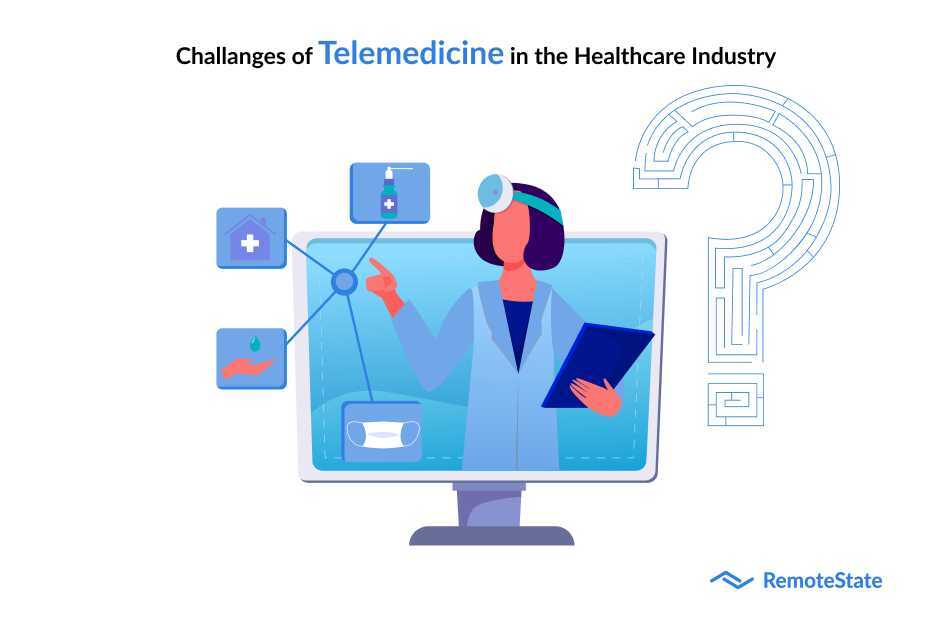
Technology Limitations
One of the biggest challenges of telemedicine is the technical limitations that can hinder its effectiveness. Patients may not have access to the necessary technology, such as a reliable internet connection or a smartphone, to receive remote care. Additionally, healthcare providers may not have the necessary technology or infrastructure to provide remote care effectively.
Privacy and Security Concerns
Telemedicine raises privacy and security concerns, as patient information is transmitted over the internet. Healthcare providers must ensure that patient information is protected and that telemedicine platforms are secure from cyber threats.
Regulatory Barriers
Telemedicine is subject to regulatory barriers that can limit its effectiveness. State and federal regulations may limit the scope of remote care that healthcare providers can provide, and reimbursement policies may not fully cover the cost of telemedicine services.
Limited Physical Examination
Telemedicine can be limited in its ability to provide a comprehensive physical examination of patients. Healthcare providers may not be able to examine patients as thoroughly as they would in person, which can limit the accuracy of diagnoses and treatment plans.
Opportunities of Telemedicine in the Healthcare Industry
Expansion of Healthcare Services
Telemedicine provides opportunities for healthcare providers to expand their services and reach more patients. Healthcare providers can offer remote consultations, monitoring, and follow-up care, which can increase access to care and improve health outcomes.
Improved Efficiency
Telemedicine can improve the efficiency of healthcare delivery by reducing wait times for appointments and eliminating the need for transportation to and from appointments. Healthcare providers can also streamline administrative tasks and reduce paperwork by using telemedicine platforms.
Increased Collaboration
Telemedicine can facilitate collaboration between healthcare providers, allowing for more coordinated care. Remote consultations and conferences can bring together healthcare providers from different locations, allowing them to share knowledge and expertise.
Improved Population Health Management
Telemedicine can improve population health management by enabling healthcare providers to identify and monitor patients with chronic conditions more effectively. Remote monitoring can detect changes in a patient's health status early on, allowing for prompt treatment and better health outcomes. Additionally, telemedicine can provide patients with better access to healthcare education and resources, which can help them manage their conditions more effectively.
Conclusion
Telemedicine has the potential to revolutionize healthcare delivery by reducing healthcare costs, improving access to care, increasing patient satisfaction, and improving health outcomes. However, there are also significant challenges that must be addressed, including technology limitations, privacy and security concerns, regulatory barriers, and limited physical examination. Healthcare providers must work to overcome these challenges to fully realize the potential of telemedicine. Overall, telemedicine represents a significant opportunity to improve the healthcare system and provide better care to patients.
Empowering Healthcare Providers with Customized Telemedicine Solutions - Partner with Remotestate for Improved Patient Care
Remotestate can play a significant role in facilitating the adoption of telemedicine by healthcare providers. By providing customized telemedicine solutions, Remotestate can help healthcare providers overcome the technological limitations and regulatory barriers that can hinder the implementation of telemedicine.
Remotestate can develop secure telemedicine platforms that are compliant with privacy and security regulations, ensuring that patient information is protected. Additionally, Remotestate can provide training and support to healthcare providers to ensure that they are comfortable using the telemedicine platform and can provide high-quality care to patients.
Furthermore, Remotestate can integrate telemedicine solutions with electronic health records (EHR) systems, improving efficiency and enabling healthcare providers to provide more coordinated and comprehensive care to patients.
FAQs
What is telemedicine?
Telemedicine is using technology to provide medical care remotely, without the need for in-person appointments.
How does telemedicine reduce healthcare costs?
Telemedicine can reduce healthcare costs by eliminating the need for costly emergency room visits or hospital stays, reducing transportation costs for patients, and providing less expensive remote care.
What are the privacy and security concerns associated with telemedicine?
Telemedicine raises privacy and security concerns, as patient information is transmitted over the internet. Healthcare providers must ensure that patient information is protected and that telemedicine platforms are secure from cyber threats.
Can telemedicine provide a comprehensive physical examination of patients?
Telemedicine can be limited in its ability to provide a comprehensive physical examination of patients, which can limit the accuracy of diagnoses and treatment plans.
What are the opportunities for telemedicine?
The opportunities of telemedicine include expanding healthcare services, improved efficiency, increased collaboration between healthcare providers, and improved population health management.
Publication Date
2023-04-17
Category
Healthcare
Author Name
Rahul Agrawal
